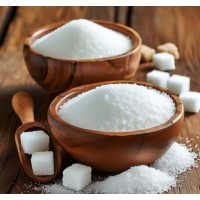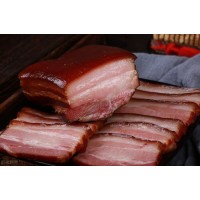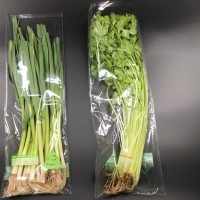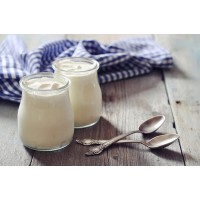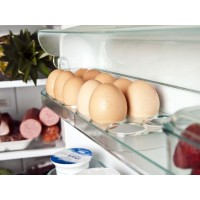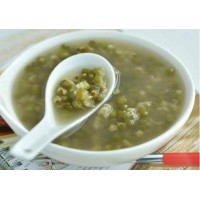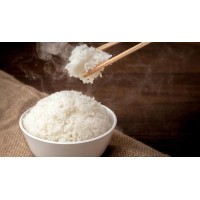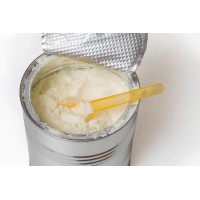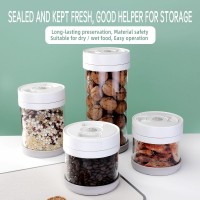10 Honey Storage Tips: Keeping Your Honey Sweet and Fresh
- 23.10.2024
- ling
- 0 reviews
1. Importance of Proper Honey Storage
To store honey correctly to prevent spoilage and maintain its quality.
Honey is a beloved natural product with many benefits. However, improper storage can lead to spoilage and a loss of its quality. This is why it's crucial to store honey correctly.
Proper storage not only ensures that honey remains delicious but also helps maintain its nutritional value. Honey contains various enzymes and vitamins that can be degraded if not stored properly. For example, exposure to light can cause these beneficial components to decompose. When honey is stored in a cool, dark place, it can retain its goodness for a longer time.
Moreover, correct storage methods can prevent the growth of bacteria and other microorganisms. If honey is not sealed properly or is exposed to moisture, it can become a breeding ground for bacteria. This can lead to spoilage and make the honey unsafe to consume.
Another important aspect of proper honey storage is choosing the right container. As mentioned earlier, honey is weakly acidic, so it should not be stored in plastic or metal containers as they can react chemically. Glass containers are a better option as they are inert and do not affect the honey.
In conclusion, proper storage of honey is essential to ensure its quality, taste, and nutritional value. By following the correct storage methods such as sealing tightly, storing in a cool and ventilated place, and using the right container, we can enjoy honey for a long time.
2. Sealed Storage
Proper Lid Sealing
When you have a filled jar of honey, it's crucial to seal it properly after taking out a small portion. A common mistake many people make is using a lid that doesn't provide effective sealing. This can allow air and bacteria to enter, increasing the risk of spoilage. For instance, air can cause the honey to absorb moisture, making it more prone to fermentation and deterioration.
Using a dry spoon is also essential. Even a single drop of water can introduce moisture and start the spoilage process. Honey is hygroscopic, meaning it has the ability to absorb moisture from the air or from any source it comes into contact with.
For large jars of honey, consider using an additional measure like plastic wrap. Just as we learned from the search results, in American English, plastic wrap is called "plastic wrap". After closing the lid, wrap the bottle with plastic wrap. This extra layer of protection can significantly reduce the entry of air and moisture, ensuring that your honey stays fresh for a longer time. Smaller cans or single-serving bags are also great options as they can be consumed quickly, reducing the risk of spoilage. By taking these steps, you can ensure that your honey remains in top condition and retains its delicious taste and nutritional value.
3. Cool and Ventilated Storage
Avoiding Light and Sunlight
Honey is a delicate substance that requires careful storage to maintain its quality. One of the most important aspects of proper honey storage is keeping it away from light and sunlight. As mentioned earlier, honey contains various enzymes and vitamins that can decompose when exposed to light. This decomposition can lead to a loss of nutritional value and a change in taste.
For example, according to the search results, enzymes and vitamins in honey will decompose when exposed to light. This is why it's crucial to store honey in a cool, dark place. A pantry or cupboard away from direct sunlight is an ideal location. Avoid storing honey on a windowsill or in a brightly lit area.
In addition to avoiding light, honey should also be kept in a cool and ventilated place. This helps to prevent the growth of bacteria and other microorganisms. As we know, honey is hygroscopic, which means it can absorb moisture from the air. If honey is stored in a humid environment, it can absorb moisture and become diluted, increasing the risk of spoilage.
To keep honey in a dry place, consider using a moisture-absorbing packet or storing it in an area with good air circulation. Avoid storing honey in the bathroom or other damp areas of the house. A dry kitchen cabinet or pantry is a better option.
By following these guidelines for cool and ventilated storage, away from light and in a dry place, you can ensure that your honey remains fresh and delicious for a long time. Remember, proper storage is essential to maintain the quality and nutritional value of this natural sweetener.
4. Container Material Considerations
Avoiding Metal Containers
Honey's weak acidity makes it important to be cautious about the container material. Metal containers, such as those made of lead, zinc, iron, or aluminum, can react chemically with honey. According to search results, there are around $52 billion worth of metals in waste around the world, and some of these metals can be toxic when they interact with substances like honey.
For example, lead is one of the softer metals but is extremely harmful if it comes into contact with honey. Zinc is often used to protect other metals from corrosion but can also react with honey. Brass, an alloy of copper and zinc, should also be avoided as a storage container for honey.
Storing honey in metal containers can lead to a degradation of its quality and potential health risks. The reaction between honey and metal can cause the release of harmful substances into the honey. This not only affects the taste but also reduces its nutritional value.
To ensure the safety and quality of honey, it's best to choose glass containers. As mentioned earlier, glass is inert and does not react with honey. It also allows you to see the honey clearly, which can be aesthetically pleasing and help you monitor its condition.
In conclusion, when storing honey, it's crucial to avoid metal containers and opt for glass or other suitable materials to prevent chemical reactions and maintain the integrity of this delicious and beneficial natural product.
5. Refrigerator Storage
Optimal Temperature
Honey can indeed be stored in the refrigerator, but it's important to keep the temperature just right. As we learned from the search results, temperature is a crucial factor when it comes to storing honey. Honey should be stored at a temperature not lower than 0 degrees Celsius. If the temperature drops too low, it can cause the honey to freeze and potentially damage its texture.
When honey is placed in the refrigerator, it may crystallize. This is a natural process and nothing to worry about. Crystallization doesn't affect the safety of honey at all. In fact, it doesn't even impact its nutritional value. The beneficial enzymes and vitamins in honey remain intact even after crystallization.
The best temperature for storing honey in the refrigerator is between 5 and 10°C. This temperature range helps to keep the honey in good condition for a longer time. For example, if you store honey at around 7°C, it can maintain its quality and taste for months.
It's important to note that while refrigeration can be a good option for storing honey, it's not always necessary. If you plan to consume your honey within a short period of time, storing it at room temperature in a proper container can also work well. However, if you have a large amount of honey that you won't be using quickly, refrigeration can help extend its shelf life.
In conclusion, storing honey in the refrigerator at the right temperature can be a good way to preserve its quality and nutritional value. Just make sure to keep an eye on the temperature and don't let it get too cold. With proper storage, you can enjoy delicious honey for a long time to come.
6. Prevent honey from fermenting
There are often yeasts in honey, and when the temperature and humidity are suitable, the yeast will grow and multiply, causing honey fermentation and rancidity. Immature honey has a high water content and is suitable for the growth of yeast. Therefore, this type of honey should be pre-treated before storage. The method is to put it in a large container, put it in a dry, ventilated, and temperature above 25 °C, and let it stand for a few days before storage.
7. Prevent honey from crystallizing
Some of the honey sold in the market has a transparent liquid appearance, so it is important to prevent the honey from crystallizing. The crystallized honey should be treated with a double layer of heat. When the outer layer is filled with water, the inner layer is filled with honey, and when the water temperature reaches 50-60 °C, it is kept for several minutes, and then it is allowed to stand for 1 day to remove the surface foam, and put it into a sterilized glass bottle to prevent honey from crystallizing.
8. Ensure that the honey is pure
Honey often contains pollen blocks, wax tablets, bee wings, bee corpses and other commonly used impurities removal method is, the honey is packed into a higher barrel, placed in a higher temperature and dry room to let it precipitate, the precipitation time depends on the indoor temperature, the general indoor temperature at 20 °C takes 3 days, 35 °C only 10 hours, after the debris sinks, pure honey can be obtained by plucking.
9. It is very important to choose ripe honey
Although storing honey in the refrigerator in summer can ensure that it does not deteriorate, but under low temperature conditions, some honey is more prone to crystallization, after this situation, you don't have to worry, crystallization is a natural phenomenon of honey, it is easy to appear when the outside temperature is lower than 13 °C, if you want to change it back to a liquid state, you can heat it with warm water at 50 °C.
It is recommended that you buy honey is best to choose mature honey, so that it can be stored for a long time and will not deteriorate, although the price will be slightly higher, but compared with health, how important will it be?
10. Prevent honey from absorbing moisture
Honey is highly hygroscopic, so it should be stored in an airtight container in a dry, ventilated room. Do not store items with strong odors in the room where honey is stored to prevent honey from absorbing odors.
Tips: The main reason for honey deterioration is honey fermentation, if there are 3 conditions at the same time, honey will ferment, what are the three conditions?
One is water, honey also contains water, if the moisture content exceeds 20%, it is a factor of yeast fermentation, the second is the temperature, the temperature of yeast fermentation should be above 20 degrees, and the last one is very simple, that is, honey contains yeast, if these three conditions exist at the same time, then, your honey will ferment.
Summary
Proper storage of honey is essential to maintain its quality and prevent spoilage. By following these methods, you can ensure that your honey remains delicious and nutritious for a long time.
Sealed storage is crucial. Use lids that provide effective sealing and make sure to use a dry spoon when taking honey out. For large jars, consider using plastic wrap for an extra layer of protection. Smaller cans or single-serving bags are also good options as they can be consumed quickly.
Storing honey in a cool and ventilated place away from light and sunlight is important. This helps to preserve the enzymes and vitamins in honey and prevents decomposition. Keep honey in a dry place to avoid absorption of moisture and potential spoilage.
When it comes to container material, avoid metal containers as honey's weak acidity can cause chemical reactions. Glass containers are a better choice as they are inert and do not affect the honey.
Refrigeration can be an option, but keep the temperature between 5 and 10°C. Crystallization is a natural process and does not affect the safety or nutritional value of honey. However, if you plan to consume honey quickly, room temperature storage in a proper container can also work.
In conclusion, proper storage methods are essential for maintaining the quality and longevity of honey. By taking these steps, you can enjoy the many benefits of honey for a long time. Whether it's for its delicious taste, nutritional value, or use in various recipes, proper storage is the key to ensuring that your honey remains in top condition.
Reviews (0)
Related Articles
How To Preserve White Sugar? Storage Methods For White Sugar
- 15.10.2024
- ling
- 0 reviews
How to determine if white sugar has absorbed moisture? What details should be paid attention to when storing white sugar? Storage Methods For White Sugar
Read MoreHow To Store Bacon Ingredients? 6 Tips For Saving Bacon
- 18.10.2024
- ling
- 0 reviews
Preservation secrets of cured meat: keeping the deliciousness lasting, why should you cook bacon before eating it? How to store bacon? 6 easy storage tips you can't miss!
Read MoreCelery Preservation Secrets: Keeping Freshness for a Long Time
- 18.10.2024
- ling
- 0 reviews
To keep freshness and maintain celery's nutrition and taste, methods:refrigerated storage,cryopreservation,discharge basin,fake plant storage,storing celery in plastic bags by vacuum sealing machine
Read MoreHow To Preserve Low-temperature Yogurt?
- 20.10.2024
- ling
- 0 reviews
Low-temperature yogurt really needs to be kept fresh. Once it goes bad, it can cause unhealthy phenomena for consumers. Now let's introduce how to store low-temperature yogurt.
Read MoreHow To Keep Eggs Fresh For A Long Time? Egg Preservation Skills
- 23.10.2024
- ling
- 0 reviews
Eggs can generally be stored for 10-15 days at room temperature,to keep eggs fresh for a long time, egg preservation skills could help you: refrigerated, store in a dry and cool place,misunderstanding and correct cognition
Read MoreHow To Keep Green Bean Soup Fresh?
- 23.10.2024
- ling
- 0 reviews
To keep green bean soup fresh,the best way is actually to cook it on the same day and eat it on the same day, and eat as much as you can,if cannot,refrigerated preservation,frozen preservation,treatment before drinking
Read MoreHow To Preserve Cooked Rice?
- 25.10.2024
- ling
- 0 reviews
Cooked rice is easy to spoil (fluff,moist,rancid,moldy,yellow,stiffen) if not stored properly,rice preservation tips:refrigerator refrigeration,thermal preservation,cryopreservation,vinegar,stir-fried preservation
Read MoreHow To Store Opened Milk Powder?
- 25.10.2024
- ling
- 0 reviews
Milk powder is very susceptible to agglomerates when wet, do not put openned milk powder in the refrigerator,it should be kept in a cool, dry place,seal the opened milk powder in a sealed bag.
Read MoreHow To Chop Pepper Enoki Mushrooms
- 19.12.2024
- ling
- 0 reviews
Preparation Of Chopped Pepper Enoki Mushrooms: 1. Cut off the roots of enoki mushrooms, wash and drain, and place on a plate; 2. Spread the chopped pepper on top of the enoki mushrooms; 3. Add water to the steamer
Read MoreHow To Make Cola Chicken Wings
- 19.12.2024
- ling
- 0 reviews
The detailed preparation of cola chicken wings,how to make cola chicken wings,Step 1 Use a knife to make multiple cuts in the raw chicken wings, or use a toothpick to poke a total of 6 small holes in the front and back of each chicken wing, which will add more flavor.
Read MoreRelated Products
Glass Vacuum Sealed Storage Container
Series:Vacuum Seal ContainerSpec:105-225mm*Ø105mmMaterial:high borosilicate glass bodyColor:White, G..
$7.20 $7.50
QH6566 Mini Vacuum Sealer
QH6566 Mini Portable Vacuum Sealer: Compact Power for Freshness on Demand!Food Preservation with the..
$15.00
QH68 Household Dry Wet Dual-Use Vacuum Sealing Packaging Machine
New product vacuum sealing machine, household dry wet dual-use vacuum packaging machine, food compre..
$14.50
QH30 Food Vacuum Crisper Plastic Seal Container For Food Storage 4-piece Set
Household Food Vacuum Crisper, Seal Food Storage, Food Grade Plastic Seal Container, Lunch Box SetHo..
$19.00


